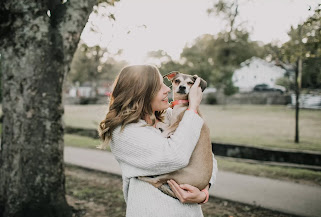Dog Vaccination: Types & Associated Risks
Pets through vaccination can surely be protected from fatal diseases as they play a critical role in reducing the risk. While many states, as usual, require the dogs to get vaccinated for rabies but there are wholesome of vaccinations to consider for.
This is because these vaccinations have saved millions of animal lives over the years, a study by the American Veterinary Medical Association (AVMA).
And 36% of the American population owns a dog that indeed embraces its importance.
But, before you take your pet to the Vet in Oxford MS, let’s dive in and have a look at the types of vaccinations available & why your dog actually needs it.
Recommended Vaccines for your Dog: Here is a checklist of core dog vaccines considers by The American Animal Hospital Association’s Canine Task Force:

1. Parvovirus:
The parvo vaccine protects against a deadly but common virus, especially in puppies, that is highly contagious through contact with infected animal stool.
2. Rabies:
A fatal and incurable disease, the rabies virus attacks the nervous system of dogs that have been exposed to the saliva of an infected animal through an open wound or bite. Rabies vaccines should always be kept up to date
3. Distemper:
This contagious disease is caused by the virus CDV and has no cure. Distemper mostly affects puppies and attacks multiple systems including the respiratory and central nervous systems.
It really causes scare: Because it has a high mortality rate, without access to a homeopathic vet.

4. Potential Risks:
Here we will discuss the risks (reactions) that vaccinations bring as this is something that every client is concerned about and lead them to not overuse vaccines. There are definitely risks associated with vaccination but they are largely outweighed by the benefits of vaccines.
Basically, there are two types of reactions that can occur anaphylactic and cell-mediated reactions.
Anaphylactic reactions occur instantly after receiving a vaccine and in some cases, they can be deadly. Cell-mediated reactions build over time upwards of twenty-four hours to even a couple of days later after vaccination. The most common reactions you’ll see with vaccinations are short-term and not very serious such as lethargy, fever, sluggishness, and reduced appetite.
These are things that we may experience after vaccination and you may see them in your pet but that this is something nothing to be concerned about because they’ll recover from that fairly easily.
But, in case of more serious reactions like excessive pain or lethargy that lasts more than 24 hours and we suggest you contact your veterinarian if you see anything like that. Reactions such as rashes, itching all over the body, facial swelling, vomiting, or diarrhea, difficulty breathing, or collapse. Those are clearly much more serious and you should seek help right away.


Comments
Post a Comment